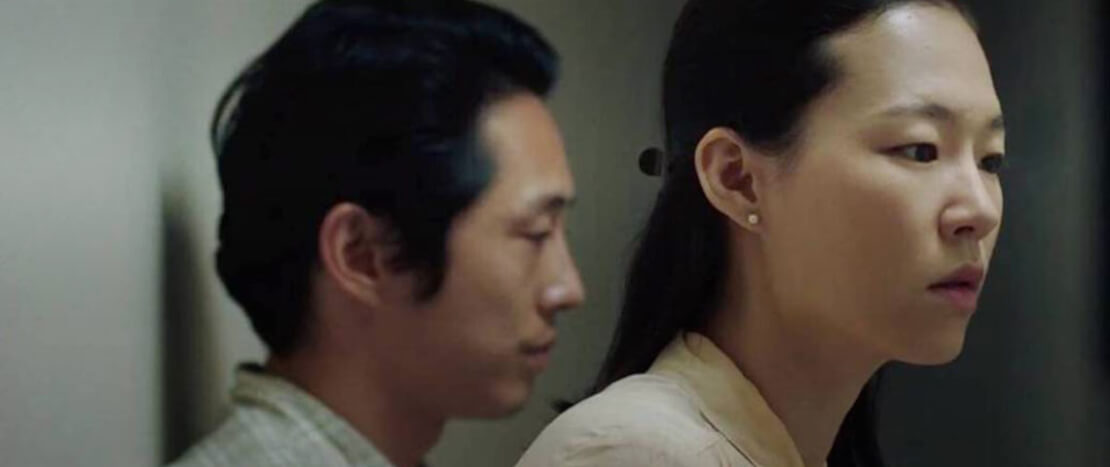Minari
In 1980s America, Jacob Yi as played by Steven Yeun convinces his Korean family to relocate to rural Arkansas. Fuelled by a dream to grow Korean food vendors in nearby Dallas, the reality isn’t shared by his wife Monica as played by Han Ye-ri. Moving into a decrepit trailer home jacked up on bricks in a field isn’t the future she imagined either for herself or their children. Worried about their son’s David’s heart condition, Monica invites her mother Soon-ja to join them from South Korea. However, Soon-ja (as played by Youn Yuh-jung) isn’t the grandmother David expected her to be and with tensions rising with the failing crops, will Jacob’s dream tear his young family apart?
… Minari is a triumph and a joy.
Director Lee Isaac Chung‘s Minari is a triumph and a joy. Understated, given its 1980s setting, it is a film about fitting in whilst trying to stay who you are. Lean and economic, the film quickly establishes the tensions that the Yi family have brought with them from California. Making money by sort out the sexes of chickens at a nearby hatchery, Jacob has sunk their savings into creating home-grown Korean ingredients. However, pulling on his conscience is a superb Han Ye-ri as his wife Monica and delightfully affecting Alan Kim as their weakened son, David. Yet, the ball really gets to rolling with the arrival of Youn Yuh-jung as David’s brash grandmother. Foul-mouthed and prone farting at night in the room that David now has to share with her, the attraction isn’t instant. However, in a performance that deservedly scored this year’s Best Supporting Actress Oscar, Youn Yuh-jung is supported by similarly strong Steven Yeun, and a sublime turn by Will Patton as Paul, their frazzled neighbour who has been struck by divine madness.
Drawn to Arkansas because “it has the best dirt in America”, Minari is a movie that initially has shades of The Mosquito Coast yet without the paranoid presence of Harrison Ford’s Allie Fox. Stephen Yeun’s slow consumption by his dream is a quiet one. Pulling him from initially optimistic buoyancy to emotional indifference, Minari‘s subplots glide effortlessly together in a film that really does deserve all of the plaudits being sent its way. See it now.













